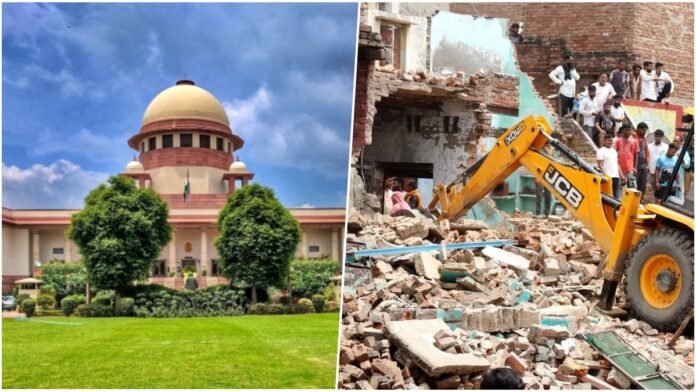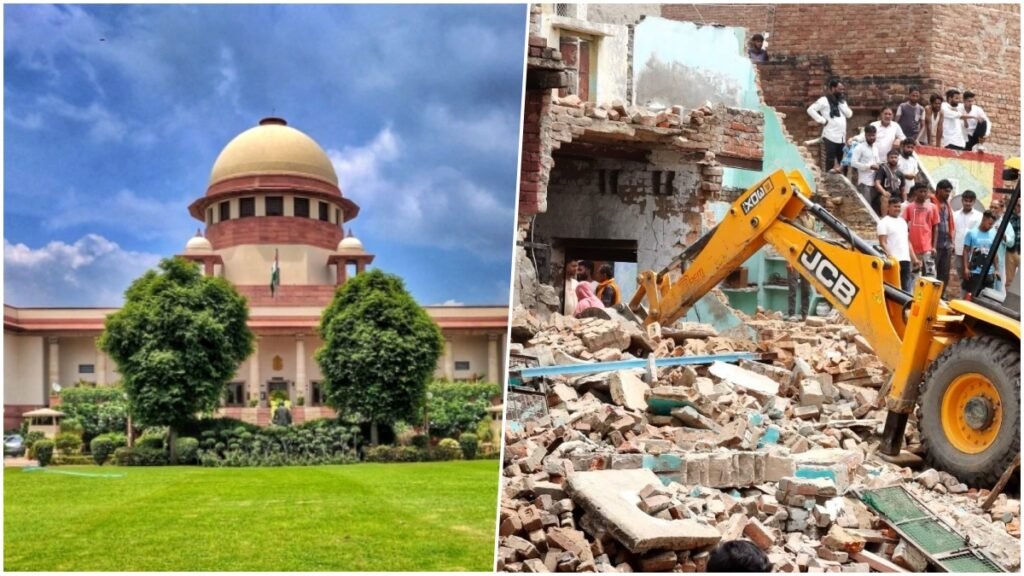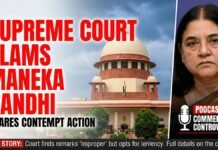
New Delhi: In a powerful ruling against arbitrary demolitions by state governments, the Supreme Court reinforced on Wednesday that the executive cannot overstep its boundaries and assume judicial authority, especially in the punitive act of demolishing properties. The court was responding to petitions challenging “bulldozer actions” in which authorities demolished properties of individuals merely accused of crimes, without due process.
Delivering the judgment, a bench of Justices B.R. Gavai and K.V. Viswanathan underscored that tearing down homes as punishment undermines the very fabric of the democratic rule of law. “The executive cannot replace the judiciary in performing its core function,” the court affirmed, emphasizing that the principle of separation of powers is vital to the country’s justice system. Demolishing a home on mere accusation without trial or conviction, it ruled, represents an unacceptable infringement on the rights of the accused.
Key Highlights of the Supreme Court’s Ruling on Arbitrary Demolitions
- Home as a Fundamental Right: The Supreme Court noted that owning a home is a fundamental aspiration and a significant part of every citizen’s life. The arbitrary demolition of homes based solely on accusations, without trial, severely violates an individual’s rights.
- Rule of Law Over Mob Justice: The court stressed that the rule of law cannot be compromised by rash executive actions. Punitive demolitions based on mere allegations defy the presumption of innocence, and public officials who carry out such actions without proper judicial oversight should be held accountable.
- Separation of Powers: Judicial functions, including adjudicating guilt, are strictly under the judiciary’s domain. The court warned that the executive cannot unilaterally decide to destroy properties as a punitive measure, as this power solely rests with the courts after due legal process.
- Selective Demolition is Questionable: Highlighting concerns over selective demolitions, the court suggested that targeting specific properties, while sparing similar structures, raises suspicion of punitive motives beyond mere legality.
- Impact on Non-Accused Family Members: The court questioned the sweeping impact of demolitions on family members not connected to the crime. If only one individual in a household is accused, it is unreasonable and unjust to displace an entire family, including women and children, onto the streets without proof or trial.
- Due Process and Notice: The court mandated that demolitions should only proceed following adequate notice—a minimum of 15 days from the date of notification or as per local municipal law—ensuring that the affected parties have an opportunity to contest the action.
- Exceptions for Unauthorised Public Land: The court clarified that its protection does not extend to unauthorized constructions on public land. However, even these demolitions must follow proper legal procedures, free from extraneous motives or selective targeting.
Interim Protection and Judicial Oversight
An interim order issued by Justice Gavai’s bench on September 17 had already paused all demolition actions without prior court permission, underscoring the need for judicial oversight in cases of alleged unauthorized structures. The court frowned upon the “glorification” of bulldozer actions, stressing that demolitions must follow due process without becoming a spectacle or tool for grandstanding.

The Supreme Court’s judgment marks a landmark defense of the principles of fair justice, separation of powers, and the presumption of innocence, delivering a clear message to state authorities: punitive demolitions are not a substitute for judicial due process.
















































